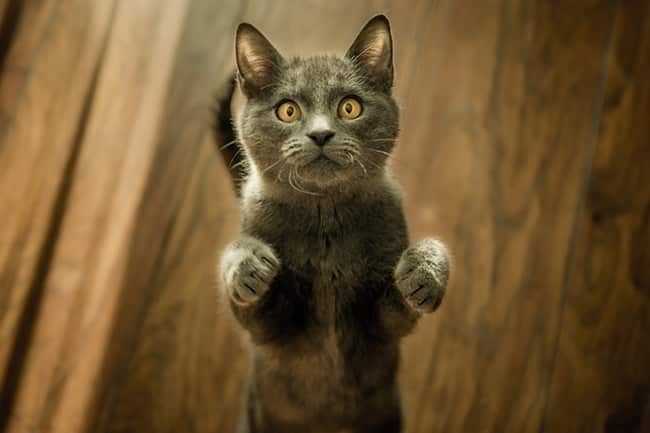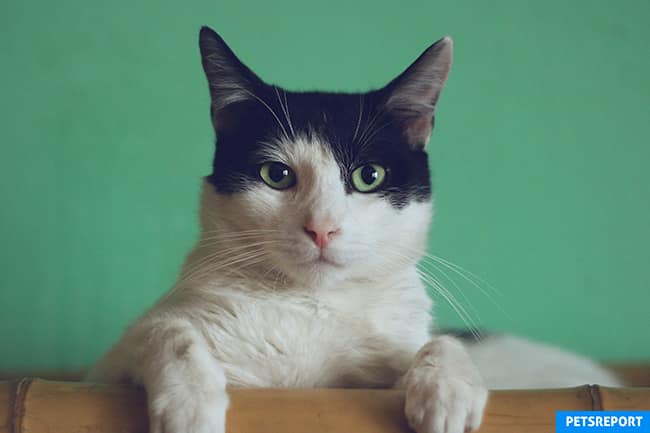We’ve all heard of dogs guarding their pet parent, yards, toys, or food bowls. But what about the feline species, do they guard? According to cat behaviorist Pam Johnson Bennett, cats can resort to resource guarding both their food stations and their litter box. This behavior can be very subtle in appearance. However, in a multi-cat household, the one defending is well in control of the situation and will keep the other cats from approaching the protected area. But do cats have the ability to safeguard people, and if so, why would they do so? Let’s explore the question of why does my cat guard me.
Guard cats, fact or fiction?
There are plenty of stories on the web about a brave feline attacking an intruder (there are also plenty more that suggest cats will run at the first hint of danger). Whether you have a cat that displays guarding tendencies depends on the cat itself—there is no scientific proof that cats will or won’t guard.
Some of the more “aggressive” breeds, like the Siamese, could turn paws to claws when an intruder enters your home. Cats are by nature more territorial than dogs, so it isn’t out of the question for one to exhibit raised hackles, growling, or meowing to a perceived threat.
They could also turn those emotions into an outward attack on an object, another animal, or a person. But are they protecting us out of love or because they feel they own us? Who knows for sure? Our cats might, but they’re not tellin’.

The guard cat
If you have a feline friend that has taken it upon himself to guard you, then you may be wondering why. For a cat that assumes the role of guardian of the home, you may notice him sitting at the front door (or the one most commonly used). In the cat’s brain, he sees his pet parent coming and going through this area and perceives it as a “hole” in the territory—a place that needs to be protected from intruders.
Interestingly enough, according to one expert, if your cat follows you to the door and meows, it could be interpreted as a warning. A mother cat would meow to warn her kittens of potential danger; this same action could be transferred to humans. This guarding behavior is your feline’s way of saying,” don’t go out there. It could be dangerous.”
Endearing and heartwarming? Sure, but there’s probably more instinctive behavior going on with our cats than we’d like to admit.
Another reason a cat may guard is due to their individual personality. According to one pet parent, Catherine Holm (Catster), her cat, Chester, guarded her by emitting a low growl when a strange car entered the drive. Chester also took it upon himself to back a large German Shepherd into the corner of the home.
Were these actions done out of an attempt to protect his “mom.” Holms states her thoughts:
“I think it was at that moment that I realized that Chester’s collegial, managerial personality had another side. He really likes order in his home and has a quiet but effective way of acting so that order is maintained.”
Is the cat guarding instinct or love?
The guardian feline role may need more studies to gauge whether the behavior is instinctive, a personality trait, or pure love for the pet parent.
However, if you have a cat that wants to guard you, take it as a compliment—the feline species can sometimes fall short with the amount of love we cat parents get. So grab it where you can and enjoy your heightened security your feline bodyguard is providing you.


Leave A Comment